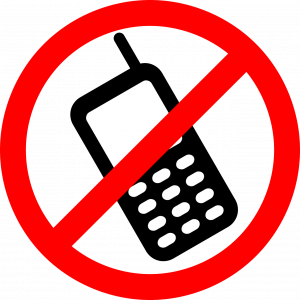“Almost everything will work again if you unplug it for a few minutes, including you.” —Anne Lamott
Today we can connect with people no matter where we are and at any time, day or night. We can get directions, listen to music, play games, email, take a picture —all on a device you carry in your pocket.
How often do you check your phone?
Electronic devices play a prominent role in employment, social life, and entertainment.
However, sometimes too much of a good thing can become a bad thing. If you’re always looking at your device you may miss out on the important things.
Don’t get me wrong. In our line of work it’s important for clients to be able to reach us.
While living totally without technology isn’t an option for most of us, we can learn to cut down.

Restricting use in the evening hours is a wise move. After all, we really need down time to mentally recharge for the next day.
Instead of stealing glances at our phones when we’re with friends, focus on those you’re with.
Research has shown that spending time in nature can help boost brain power, if you take a break from your phone.
The results showed that only the participants who had rested in a green space without a laptop showed a significant improvement in their scores on the final attention test.
Here’s an idea – Take an “electronic-free” vacation. Spend time outdoors. Even just a day without social networking could be beneficial.
Could your family unplug from technology for six months? An article I stumbled across while studying the digital detox movement.
“The Winter of Our Disconnect” is the story of how one highly idiosyncratic family survived six months of wandering through the desert, digitally speaking, and the lessons we learned about ourselves and our technology along the way.
Perhaps six months without technology makes you panic….I must admit the thought of going that length of time without my smartphone makes me a bit stressed to say the least.
Research from Netta Weinstein and others finds that lack of time in the natural world, mainly due to many hours spent in front of screens) leads to depression. – STEP AWAY FROM YOUR ELECTRONICS & GET BACK TO NATURE
The silver lining here is that we already have the solution—nature. Time in nature is inherently healing. Research shows that most people prefer natural environments when they’re feeling stressed. On some level, we recognize our need for nature.
The Parry Sound area has so much to offer for those wanting to take a break from social media and get back to nature.
The bottom line is….we all could benefit if we just turned off our phone more often and focused on the more important things in our life, including friends and family. Embrace those precious moments.
After all, if you’re looking down at your phone you could miss out.




